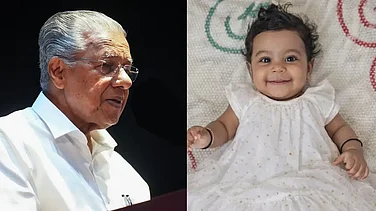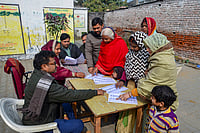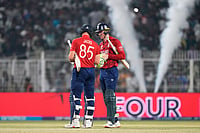A court in Maharashtra's Thane district has acquitted a man and his five family members accused of killing his wife for dowry in 2014 by giving them a benefit of doubt.
The court of Additional Sessions Judge Rachna R Tehra said the prosecution has failed to prove the charges against the accused, and there was no provision in law to convict someone emotionally. The court passed the order on March 13, which was made available on Saturday. The victim had married the man, now 43, in 2005.
The prosecution told the court that after the marriage, the victim resided with her husband and in-laws at Mumbra. The couple had two daughters and a son. A year after their marriage, the woman's in-laws started treating her badly. They tortured her physically as well as mentally to demand Rs 10 lakh from her parents for the purchase of land, it said.
The prosecution also said that the accused strangulated the woman with the help of a 'dupatta' (long cloth) in March 2014 near the Ranjnoli Naka and stuffed her body in a gunny bag, which they dumped in a nullah.
Appearing for the defence, lawyers M Z Shaikh and Nadeem Khan contested the claim and argued that the accused had no role in the death of the victim. After hearing both sides, the court said, "In the facts and circumstances of the case, there are material contradictions, omissions and/or improvements so far as the accused are concerned.
Therefore, it is not safe to convict the accused persons on the evidence available on record. The benefit of material contradictions, omissions and improvements must go in favour of the accused persons. Therefore, as such the accused persons are entitled to be given the benefit of doubt."
"In the present case, a female was dead. This court also feels sorry for such unnatural death of the deceased. But convincing material not tendered by the prosecution to come to the conclusion that the accused persons conspired and committed the murder and nobody else. There is no provision in law for emotional conviction," it said.


























